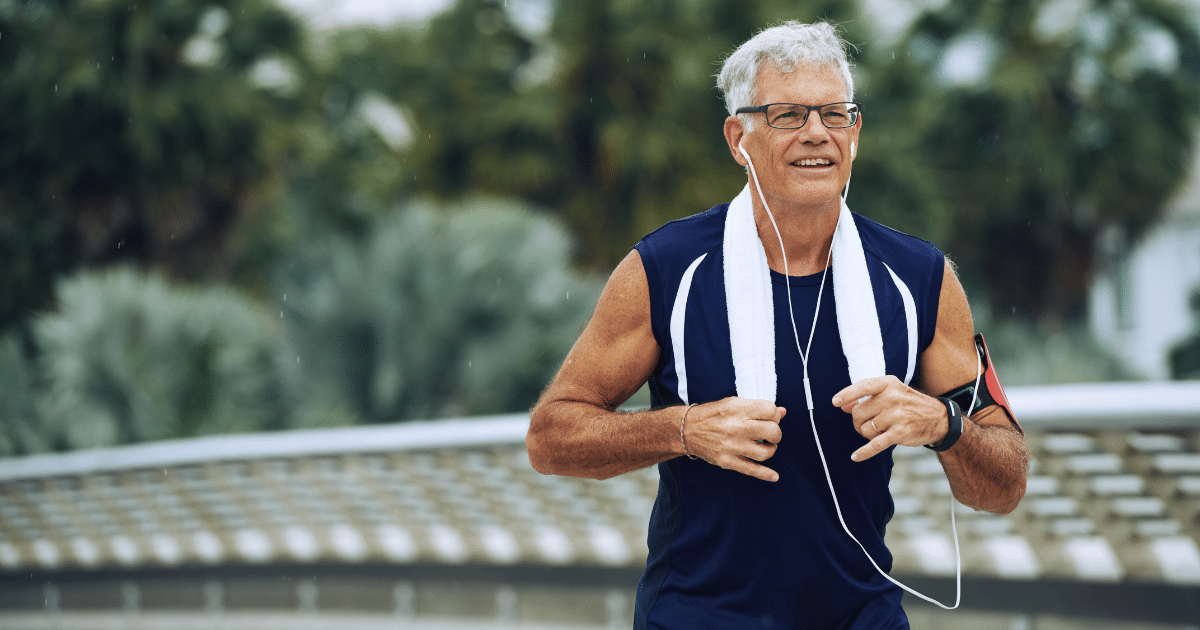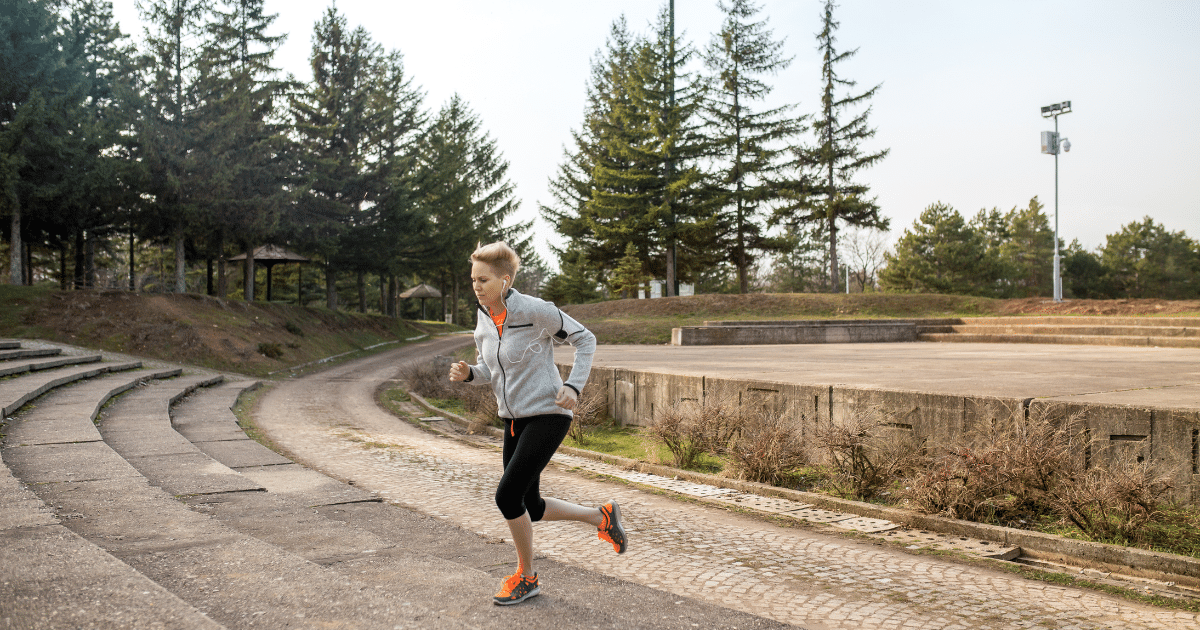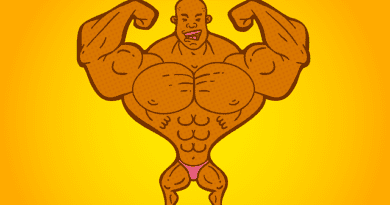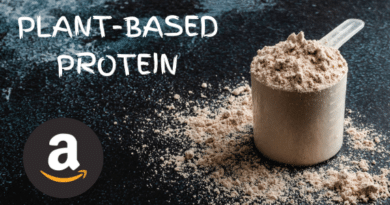Your Active Lifestyle Demands a Quality Protein Powder
You’re probably reading this article because you have embraced an active lifestyle – I commend you for that. You put a high demand on your body and expect it to perform optimally. When you don’t feed your body what it needs, you’ll find your recovery is slow, your energy is zapped, and your workouts tend to suffer. Because you have an active lifestyle, your body demands proper nutrition.
Unfortunately, for most Americans, they have no issue taking in their daily requirements for carbohydrates and fat, while their protein tends to be forgotten about. First and foremost, you need to look at the whole food options you have available. Are you able to eat enough protein from meat, chicken, fish, eggs, or plants in order to take in around a gram of protein per pound of body weight? If not, you should consider the convenience of a protein powder. And not just any protein powder will do. You need a high-quality protein powder.
Disclaimer: This article is for informational purposes only and is not meant to treat or diagnose any condition. It is recommended that you speak with your doctor before starting any exercise program, changing your daily nutrition, or adding any supplements to your regimen.
What Does It Mean to Live an Active Lifestyle?

Living an active lifestyle generally refers to maintaining a routine that involves regular physical activity and exercise. It goes beyond just occasional workouts and encompasses incorporating movement into various aspects of daily life. Here are some key components of an active lifestyle:
- Regular Exercise: Engaging in structured and intentional physical activities such as jogging, swimming, cycling, or attending fitness classes.
- Daily Movement: Incorporating movement into daily routines, such as walking instead of driving short distances, taking the stairs instead of the elevator, or doing household chores.
- Healthy Habits: Adopting habits that contribute to overall well-being, including proper nutrition, sufficient sleep, and stress management.
- Hobbies and Recreational Activities: Participating in recreational activities or hobbies that involve physical movement, such as sports, dancing, or outdoor adventures.
- Consistent Physical Activity: Striving for consistency in maintaining an active lifestyle rather than sporadic bursts of activity.
- Social Engagement: Choosing activities that allow for social interaction, such as group fitness classes or team sports, to combine physical activity with socialization.
- Balancing Sedentary Activities: Being mindful of and minimizing sedentary behaviors, such as prolonged sitting or excessive screen time.
Living an active lifestyle is associated with numerous health benefits, including improved cardiovascular health, weight management, enhanced mood, and reduced risk of chronic diseases. It’s important to find activities that one enjoys and can sustain in the long term to make an active lifestyle a fulfilling and lasting part of one’s routine.
Why Would You Want to Live an Active Lifestyle?

Living an active lifestyle offers a wide range of physical, mental, and emotional benefits. Here are some compelling reasons why individuals may choose to embrace and maintain an active lifestyle:
- Improved Physical Health:
- Cardiovascular Health: Regular physical activity helps maintain a healthy heart and reduces the risk of cardiovascular diseases.
- Weight Management: Engaging in regular exercise supports weight control and helps prevent obesity.
- Enhanced Mental Health:
- Stress Reduction: Physical activity is known to reduce stress levels and promote relaxation.
- Mood Boost: Exercise stimulates the production of endorphins, leading to improved mood and reduced feelings of anxiety and depression.
- Better Sleep: Regular activity is linked to better sleep quality and can help address sleep disorders.
- Increased Energy Levels:
- Improved Endurance: Being physically active enhances overall endurance and stamina.
- Increased Oxygen Flow: Exercise increases blood flow and oxygen delivery to tissues, leading to increased energy levels.
- Prevention of Chronic Diseases:
- Reduced Risk: Regular physical activity is associated with a lower risk of developing chronic conditions such as type 2 diabetes, certain cancers, and osteoporosis.
- Social Connection:
- Community Engagement: Participating in group activities or sports fosters social connections and a sense of community.
- Shared Goals: Joining fitness classes or sports teams provides opportunities to connect with others who share similar health and wellness goals.
- Enhanced Cognitive Function:
- Brain Health: Physical activity has been linked to improved cognitive function and a reduced risk of cognitive decline with aging.
- Improved Immune System:
- Enhanced Immunity: Regular exercise supports a robust immune system, reducing the risk of infections and illnesses.
- Long-Term Well-Being:
- Aging Gracefully: An active lifestyle contributes to maintaining mobility and independence as individuals age.
- Quality of Life: Being physically active is associated with a higher overall quality of life.
- Positive Lifestyle Habits:
- Healthy Habits: Adopting an active lifestyle often goes hand-in-hand with making healthier choices in terms of nutrition and overall wellness.
Ultimately, living an active lifestyle is a holistic approach to well-being, addressing physical, mental, and emotional aspects of health. It’s a proactive choice that contributes to a healthier and more fulfilling life.
You Need a Quality Protein Powder to Support Your Lifestyle
There are many sources of protein you can choose from based on your needs. You have slow-digesting protein like with a casein and then you have fast-digesting like with a whey protein isolate. When you need immediate recovery and you want to kickstart the process of rebuilding torn down muscle fibers, a quality protein powder such as whey protein isolate would be an ideal.
Related Article: Do You Really Know What You’re Putting in Your Body?
Whey protein isolate contains a good amount of amino acids to aid in proper recovery from intense workouts. You put a lot of stress on your body due to your active lifestyle that you could really benefit from the convenience of a quick and simple quality protein powder that you can mix up in a hurry and then get on with your day.

The nice thing about many whey protein isolate protein powders on the market is that they are low in carbohydrates and fat. This allows you to be more flexible with your macros and if you wished to add something like fresh fruit to increase the carbohydrate content or even some natural peanut butter for healthy fats, you can easily do so. Or, simply take the whey protein isolate as is and fill in your carbs and fat through whole food options during your day to hit your daily intake.
Thanks to advancements in flavor systems, it’s very easy to find a quality protein powder that tastes good. Most will come in either a vanilla or chocolate to suit your personal taste. But overall, many protein powders on the market are neglecting one major aspect and that’s how easily your body can digest the protein, break it down, and then shuttle it out to the muscles to start repairing and rebuilding the muscle. This is a key part of fueling and refueling your active lifestyle!
Click here to continue reading…


*Disclosure: This article may contain affiliate links or ads, which means we earn a small commission at no extra cost to you if you make a purchase through these links. These commissions help support the operation and maintenance of our website, allowing us to continue producing free valuable content. Your support is genuinely appreciated, whether you choose to use our links or not. Thank you for being a part of our community and enjoying our content.
PLEASE CONSIDER SHARING THIS ON YOUR SOCIAL MEDIA TO HELP OTHERS LEARN MORE ABOUT THIS TOPIC.





